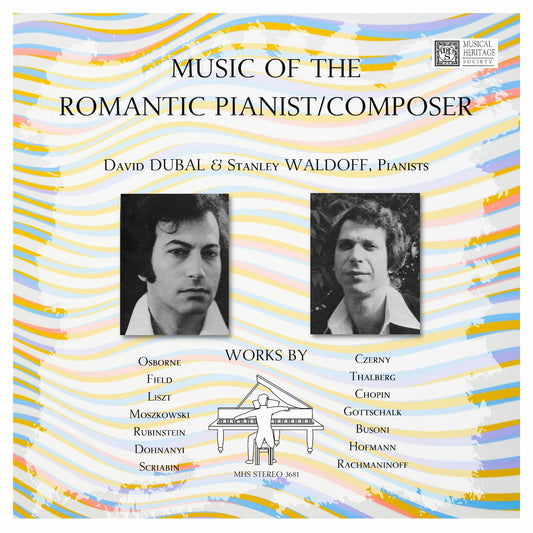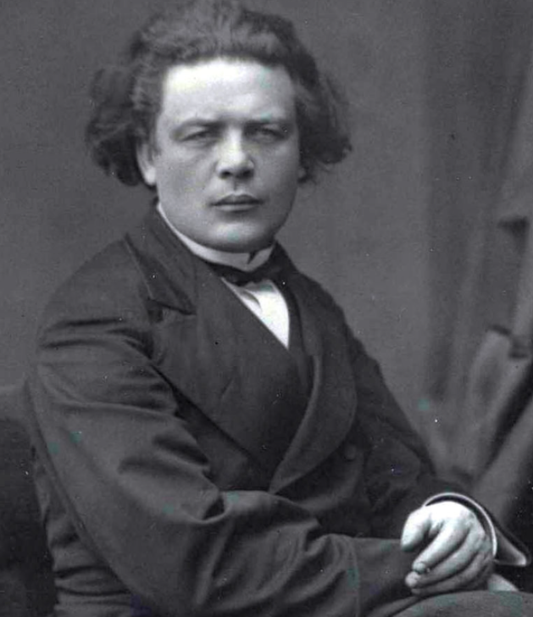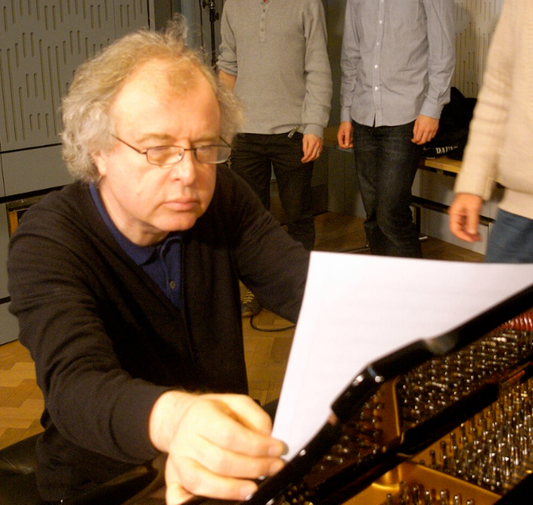Collection: FRANZ LISZT (1811-1886)
Franz Liszt (1811-1886) stands as one of the most towering and multifaceted figures of 19th-century music. A Hungarian-born composer, virtuoso pianist, conductor, teacher, and arranger, Liszt embodied the Romantic era's spirit with his dazzling technical prowess, innovative compositions, and charismatic personality that ignited the phenomenon known as "Lisztomania."
Born in Raiding, Hungary (then part of the Austrian Empire), Liszt's prodigious musical talent was evident from an early age. Encouraged by his father, Adam Liszt, he received early instruction and soon impressed Hungarian magnates who sponsored his further education in Vienna. There, he studied piano with Carl Czerny, a pupil of Beethoven, and composition with Antonio Salieri. His public debut in Vienna was a triumph, allegedly earning him a kiss from Beethoven himself – a story likely apocryphal but indicative of his early impact.
Moving to Paris in the 1820s, Liszt quickly became a sensation in the city's vibrant artistic salons. Initially aspiring to be primarily a composer, his encounter with the violinist Niccolò Paganini in 1832 proved transformative. Inspired by Paganini's demonic virtuosity and stage presence, Liszt resolved to achieve a similar level of mastery on the piano. He retreated from the concert stage for several years, dedicating himself to rigorous practice, emerging with a "transcendental technique" that redefined the possibilities of the instrument.
The period from the late 1830s to 1847 marked Liszt's "Glanzzeit" or years of glory as a touring virtuoso. He crisscrossed Europe, captivating audiences with his technical fireworks, dramatic interpretations, and magnetic stage persona. Crowds reacted with unprecedented hysteria – fainting, fighting over his discarded gloves – coining the term "Lisztomania." During this time, Liszt effectively invented the solo piano recital as we know it, turning the piano sideways to showcase his profile and performing entire programs from memory, a novelty at the time. His transcriptions of orchestral works, operas, and songs further expanded the piano's repertoire and demonstrated its orchestral capabilities.
In 1847, at the height of his fame as a performer, Liszt largely abandoned his lucrative touring career to accept the position of Kapellmeister Extraordinary at the court of Weimar. This marked a significant shift towards composition and conducting. In Weimar, he became a champion of the "New German School," promoting the progressive works of composers like Richard Wagner (who became his son-in-law) and Hector Berlioz. Liszt's own compositional output flourished during this period. He pioneered the symphonic poem, a single-movement orchestral form based on a literary or pictorial idea, composing seminal works like Les Préludes, Mazeppa, and Orpheus. His major piano works from this era, including the monumental Piano Sonata in B minor, the Faust Symphony, and the Dante Symphony, showcased his mature style, characterized by thematic transformation, harmonic daring, and profound expressivity.
Liszt's personal life was complex, marked by long-term relationships with Countess Marie d'Agoult (with whom he had three children, including Cosima, later Wagner's wife) and Princess Carolyne zu Sayn-Wittgenstein. His relationship with Carolyne influenced his decision to settle in Weimar and later led him towards a deeper religious path. In the 1860s, he moved to Rome, took minor orders in the Catholic Church in 1865, becoming known as Abbé Liszt. His compositions increasingly reflected this religious turn, with oratorios like Christus and The Legend of Saint Elizabeth, alongside more experimental and harmonically adventurous late piano pieces that anticipated 20th-century developments.
In his later years, Liszt divided his time between Rome, Weimar, and Budapest (the "vie trifurquée"), dedicating himself generously to teaching. He mentored countless pianists, shaping generations of performers through his influential masterclasses. He also played a crucial role in establishing Hungary's musical identity, serving as the first president of the Royal National Hungarian Academy of Music (now the Liszt Academy) in Budapest.
Franz Liszt died in Bayreuth in 1886. His legacy is immense: he revolutionized piano technique, pioneered new compositional forms like the symphonic poem, pushed harmonic boundaries, invented the modern piano recital, and tirelessly championed the music of his contemporaries. As both a performer of unparalleled magnetism and a composer of profound originality, Liszt remains a central and enduring figure in the history of Western music.







